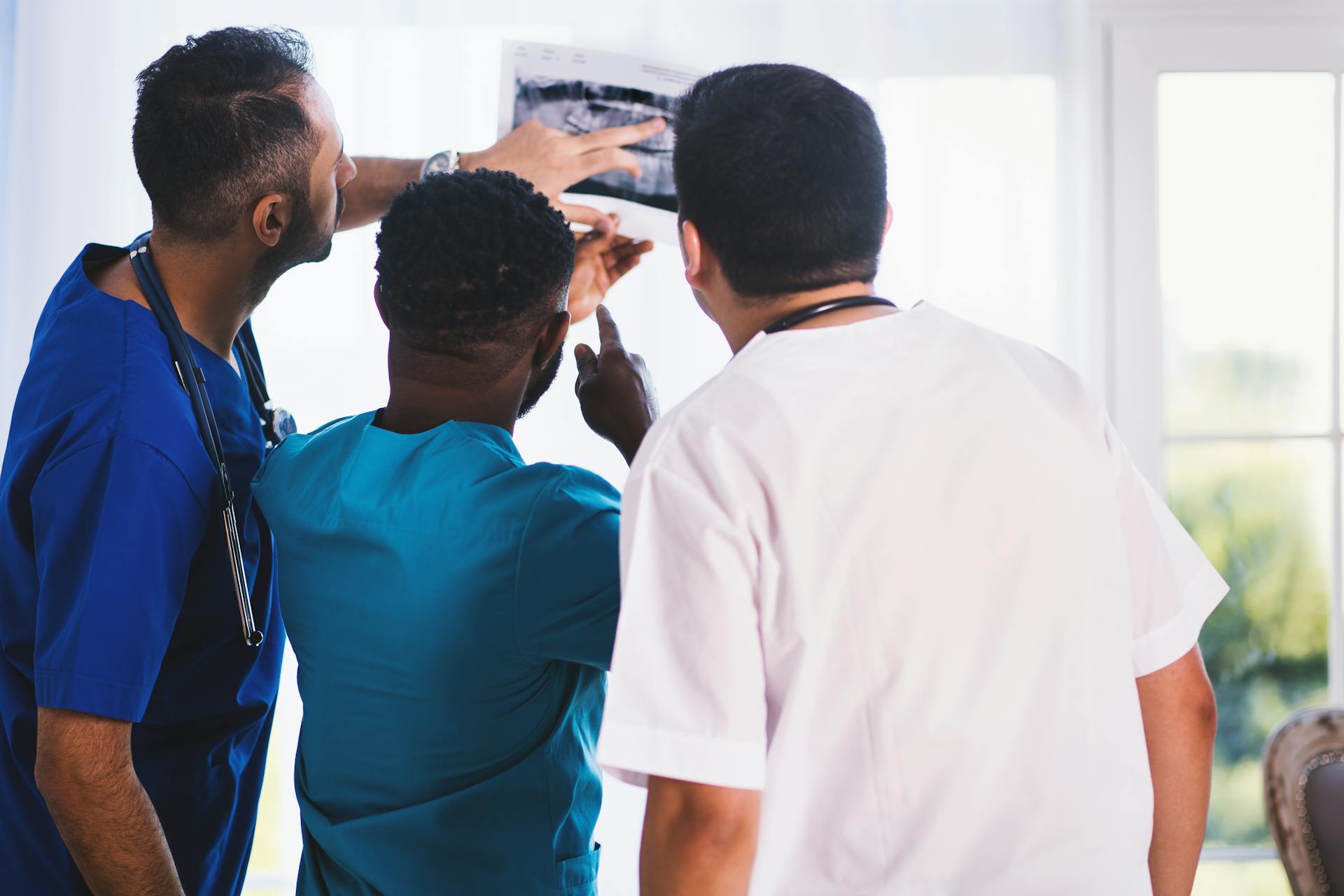
Ovarian cancer screening isn't as simple as getting an ultrasound. Despite the increasing awareness about ovarian cancer, early detection remains a challenge. In fact, there is no reliable screening test for this disease, which is why doctors usually assume you're at average risk and don't recommend any specific tests during your well-woman exams.
Daytime television recently made headlines when Grey's Anatomy star Ellen Pompeo gave questionable advice about ovarian cancer screening on the Ellen Degeneres Show. During the show, Degeneres auctioned off a Starbucks date with Pompeo to raise money for breast cancer research. However, some audience members were concerned when they recently heard that Pompeo recommended a simple ultrasound for ovarian cancer screening, even if your doctor and health insurance won't pay for it. While regular checkups make sense and can help detect ovarian cancer in its early stages, a simple ultrasound may not be enough to detect this disease reliably.
How to Manage Your Emotions and Find Comfort

Being diagnosed with ovarian cancer can bring on a whirlwind of emotions. It's essential to find ways to manage these feelings and feel comfortable discussing them with your healthcare team, friends, or family members. Some people prefer meeting one on one, while others benefit from joining formal support group support groups.
Cancer treatments can be overwhelming, and it's essential to set reasonable goals to help manage the stress. Choosing goals helps you focus on what you can control and gives you a sense of accomplishment. These goals might include exercising regularly, trying new hobbies or activities, or making time for self-care.
It's crucial to remember that managing your emotions is an ongoing process that takes time and patience. Don't be too hard on yourself if you're struggling; instead, reach out for support when needed. With the right tools and mindset, it's possible to find comfort during this difficult time.
How to get ready for your upcoming appointment effortlessly?

Getting ready for an upcoming appointment can be a bit overwhelming, especially if it's regarding ovarian cancer screening. The first step is to make sure that you have scheduled an appointment with your family doctor or primary care doctor. If your primary care doctor suspects that you may have ovarian cancer, they will refer you to a gynecological oncologist.
A gynecological oncologist is a specialist who has received additional training in the diagnosis and treatment of female reproductive cancers, such as ovarian cancer and other gynecological cancers. If you have not seen an obstetrician-gynecologist (OB-GYN) recently, your primary care doctor might recommend scheduling an appointment with one to ensure that everything is okay. Remember that early detection is key when it comes to ovarian cancer, so don't hesitate to schedule your screening today!
1. Questions to ask your doctor
When it comes to ovarian cancer screening, it's important to have an open and honest conversation with your doctor. Here are some questions you may want to ask:
1. What are the potential side effects of the screening tests?
2. Am I at an increased risk for ovarian cancer due to any current health conditions or family history?
3. How often should I be screened for ovarian cancer based on my individual risk factors?
By asking these questions, you can gain a better understanding of what to expect during ovarian cancer screening and ensure that you receive the appropriate care based on your unique health situation. It's always better to be proactive when it comes to your health, so don't hesitate to speak up and ask your doctor any lingering questions you may have.
Knowing the Right Time to Seek Medical Help

When it comes to ovarian cancer, early detection is key. Women should be aware of the risk factors for developing ovarian cancer and seek medical help if they experience any symptoms. Some of the risk factors include age, family history, obesity, and a personal history of breast or colon cancer.
It’s important to remember that not all symptoms are indicative of ovarian cancer, but it’s better to be safe than sorry. If you are experiencing persistent abdominal pain or bloating, difficulty eating or feeling full quickly, changes in bowel habits or urinary frequency, or unexplained weight loss or gain, it’s time to seek medical help. By being proactive about your health and seeking medical attention when needed, you can increase your chances of catching ovarian cancer in its early stages and improving your overall prognosis.
Frequently Asked Questions
Can a transvaginal ultrasound tell you if your ovaries are cancerous?
A transvaginal ultrasound can detect ovarian masses, but it cannot determine if they are cancerous. A biopsy or additional imaging tests may be necessary for a definitive diagnosis.
Should we routinely screen for ovarian cancer?
No, routine screening for ovarian cancer is not recommended as it can lead to unnecessary surgeries and false positives. Women with a family history or genetic predisposition should discuss their risk with their doctor and consider screening options.
Why is ovarian cancer difficult to detect?
Ovarian cancer is difficult to detect because its symptoms are vague and can be mistaken for other conditions, and there is currently no reliable screening test available.
What diagnostic tests are used for ovarian cancer?
Diagnostic tests for ovarian cancer may include a pelvic exam, blood tests, imaging tests such as ultrasound or CT scan, and biopsy to confirm the diagnosis.
Is there a screening test for ovarian cancer?
Yes, there are several screening tests for ovarian cancer, including blood tests for CA-125 and transvaginal ultrasound, but they are not always reliable and may lead to false positives or negatives. It is important for women to discuss their individual risk factors with their healthcare provider and undergo regular gynecologic exams.
Featured Images: pexels.com

